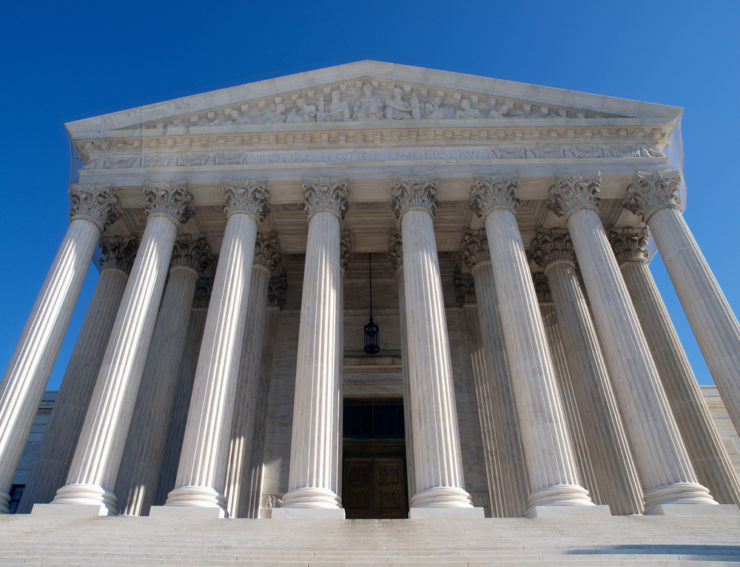
Back in December, we wrote about Murphy v. NCAA (“Murphy”), a case where the State of New Jersey challenged a federal law that bans states from allowing sports gambling. We explained that this case has important implications for state-legal marijuana programs, because it asks whether the Constitution’s anti-commandeering doctrine prevents the federal government from forcing states to ban certain activities. The case took a long and winding path, but on Monday, the U.S. Supreme Court ruled by an impressive 7-2 margin that federal prohibition did not preempt the state’s gambling laws. This is great news for cannabis.
We have argued on this blog that applicable law prohibits the feds from shutting down state cannabis programs. In support of this argument, we have observed that the Tenth Amendment of the Constitution (the source of the anti-commandeering doctrine), coupled with the express, anti-preemption language of the federal Controlled Substances Act, grants the states ample authority to run cannabis programs. Given the precedent established in Murphy on Monday, it is hard to imagine any other outcome if the feds were attempt to enjoin (shut down) a state licensing program for marijuana.
In reaching its opinion, the majority acknowledged that the question of whether to legalize sports gambling “is a controversial one” that “requires an important policy choice.” But that choice, the majority continued, “is not ours to make. Congress can regulate sports gambling directly, but if it elects not to do so, each State is free to act on its own.” It is hard not to see parallels with marijuana legislation there. Along those lines, the Court also observed that:
“The legalization of sports gambling is a controversial subject. Supporters argue that legalization will produce revenue for the States and critically weaken illegal sports betting operations, which are often run by organized crime. Opponents contend that legalizing sports gambling will hook the young on gambling, encourage people of modest means to squander their savings and earnings…”
Substitute “marijuana” for “sports gambling” and you have an almost perfect distillation of the broad policy arguments made by pro- and anti-cannabis prohibition camps. Because of these striking parallels, supporters of cannabis filed an amicus brief in support of the State of New Jersey. In addition, litigants in the Supreme Court’s most notable marijuana case to date, Gonzales v. Raich, were quick to opine that Murphy is easily distinguished from the former case, which dealt only with the federal government’s ability to enforce federal laws within state borders, and not with the feds’ ability to require states to pull state laws off the books.
For cannabis advocates, Murphy is an especially fun case, because it originally was brought by former New Jersey Governor Chris Christie, and the case was known as Christie v. NCAA before Phil Murphy became the state’s governor. Christie, of course, is known for his repeated attacks against state legalization of marijuana, and his disregard of states’ rights in that context. Today, however, he is applauding the Murphy decision and the “rights of states and their people to make their own decisions.” Go figure!
In any case, anyone in favor of states’ rights, including the right to ignore retrograde federal laws around marijuana prohibition, should be excited about the Supreme Court’s decision in Murphy. It stands as the latest in a string of promising federal developments signaling the end of cannabis prohibition. Hopefully, the end is finally near.























